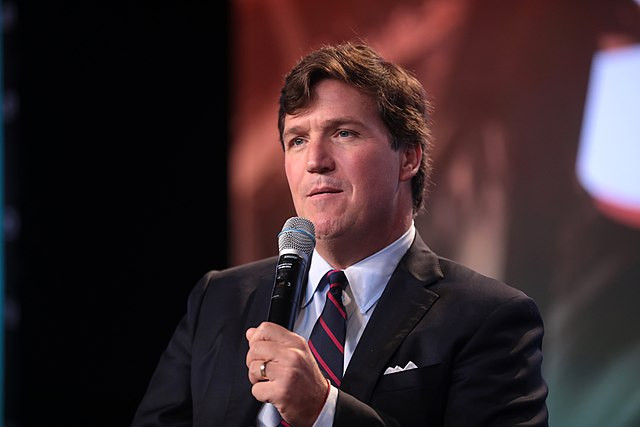Tucker Carlson's unexpected visit to Moscow has ignited a firestorm of speculation and debate, stirring the pot of international discourse.
The former Fox News host, known for his polemical style and conservative bent, was reported to have landed in the Russian capital on February 1, with sightings of him at significant cultural venues like the Bolshoi Theater. This development has led to rampant conjecture about the possibility of a high-profile interview with none other than Russian President Vladimir Putin.
Carlson's foray into Moscow comes amidst a backdrop of strained U.S.-Russia relations, primarily due to the protracted conflict in Ukraine. His presence in Moscow, therefore, is not just a personal sojourn but a move laden with potential geopolitical ramifications.
"I tried to interview Vladimir Putin, and the U.S. government stopped me," Carlson revealed in an interview with Swiss magazine Die Weltwoche, shedding light on his longstanding interest in engaging with the Russian leader.
The prospect of a Tucker Carlson-Vladimir Putin dialogue has polarized opinions across the political spectrum. Georgia Representative Marjorie Taylor Greene, a vocal Carlson supporter, took to social media to laud the initiative.
"Democrats and their propagandists in the media are spasming at the prospect of Tucker Carlson interviewing Putin... We have a free press in this country, and it's people like Tucker Carlson who we depend on to speak the truth!" she exclaimed, highlighting the contentious nature of Carlson's Moscow visit.
Conversely, critics like former Congressman Alex Kinzinger and CNN commentator Bill Kristol have expressed vehement opposition to Carlson's actions, with Kinzinger going as far as branding him a "traitor" for his perceived proximity to Russian narratives.
This dichotomy underscores the deep ideological fissures within the American political dialogue, with Carlson's Moscow trip acting as a lightning rod for broader debates on media freedom and national allegiance.
Russian media's reception of Carlson adds another layer to this complex tapestry. Russian state media have previously amplified Carlson's content, particularly when it aligns with Kremlin viewpoints or critiques Western policies.
This synergy between Carlson's broadcasts and Russian propaganda efforts has led to accusations of Carlson inadvertently echoing Kremlin talking points, further muddying the waters of his journalistic intentions.
As the speculation around Tucker Carlson's Moscow visit continues to unfurl, the global community remains on tenterhooks, awaiting concrete developments. Should an interview with Putin materialize, it could mark a significant moment in media history, offering a rare glimpse into the mindset of one of the world's most scrutinized leaders through the lens of one of America's most polarizing media figures. The implications of such an encounter could reverberate far beyond the confines of a television studio, influencing public opinion and diplomatic stances in an era of unparalleled global interconnectedness.




